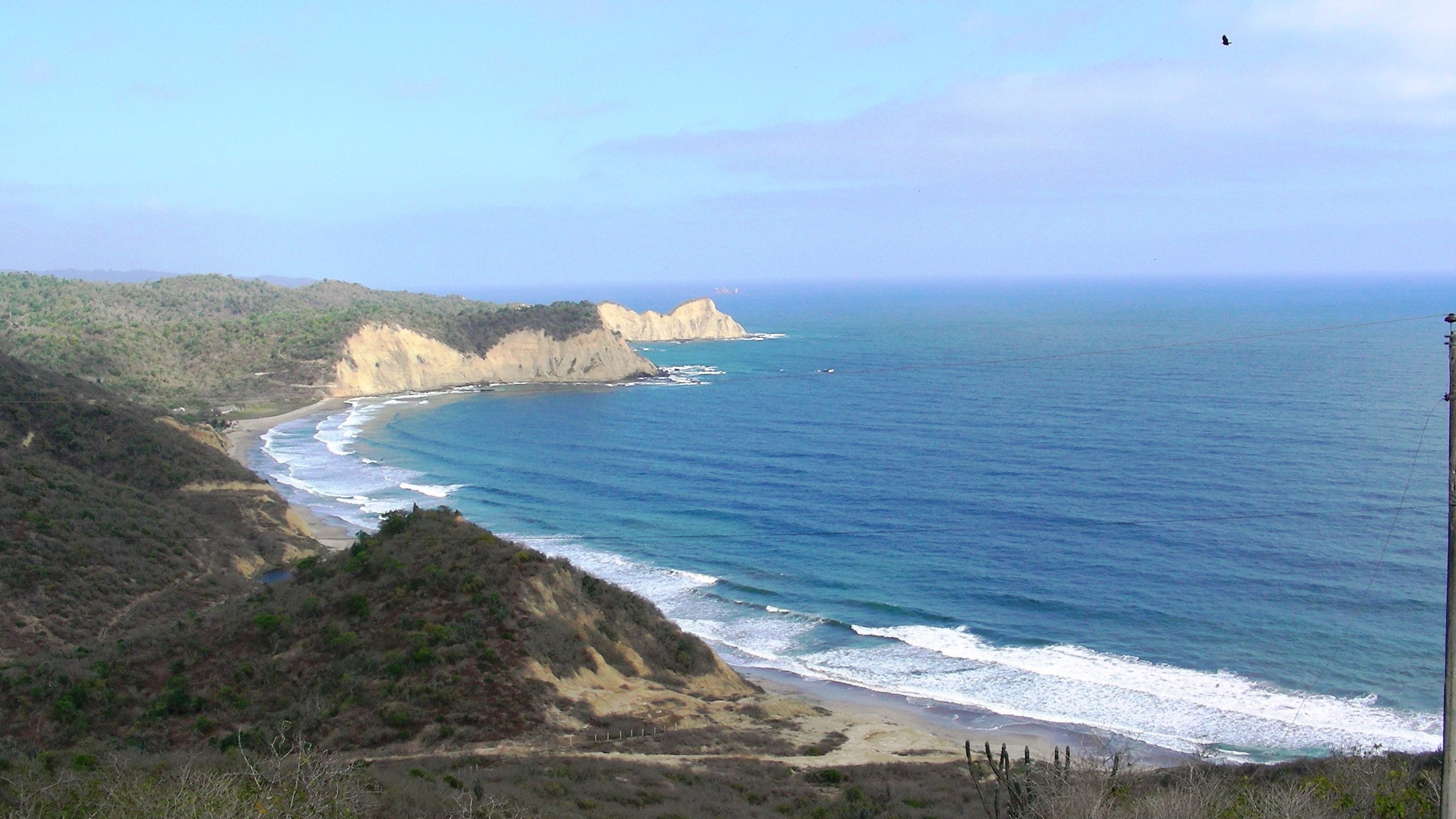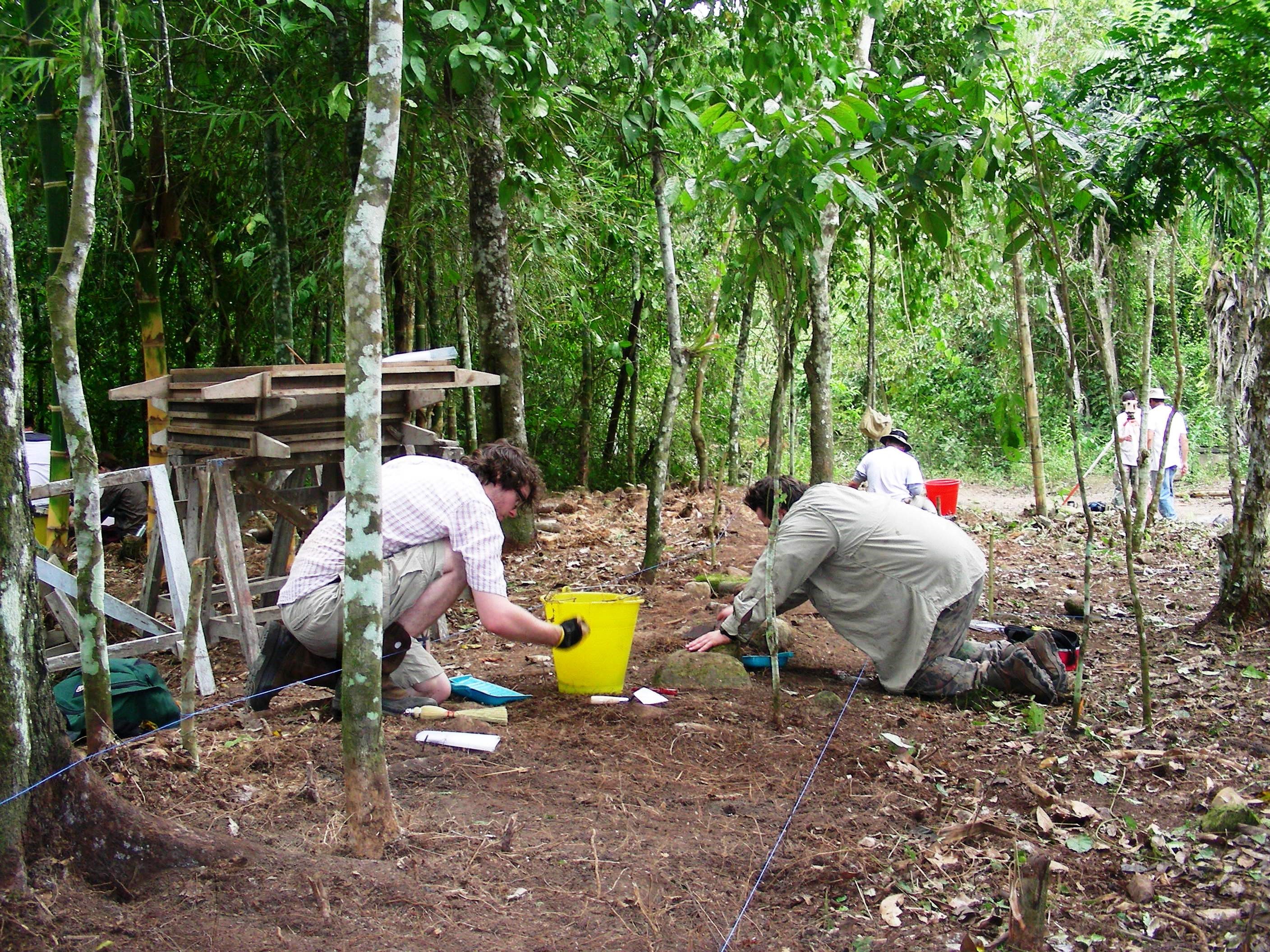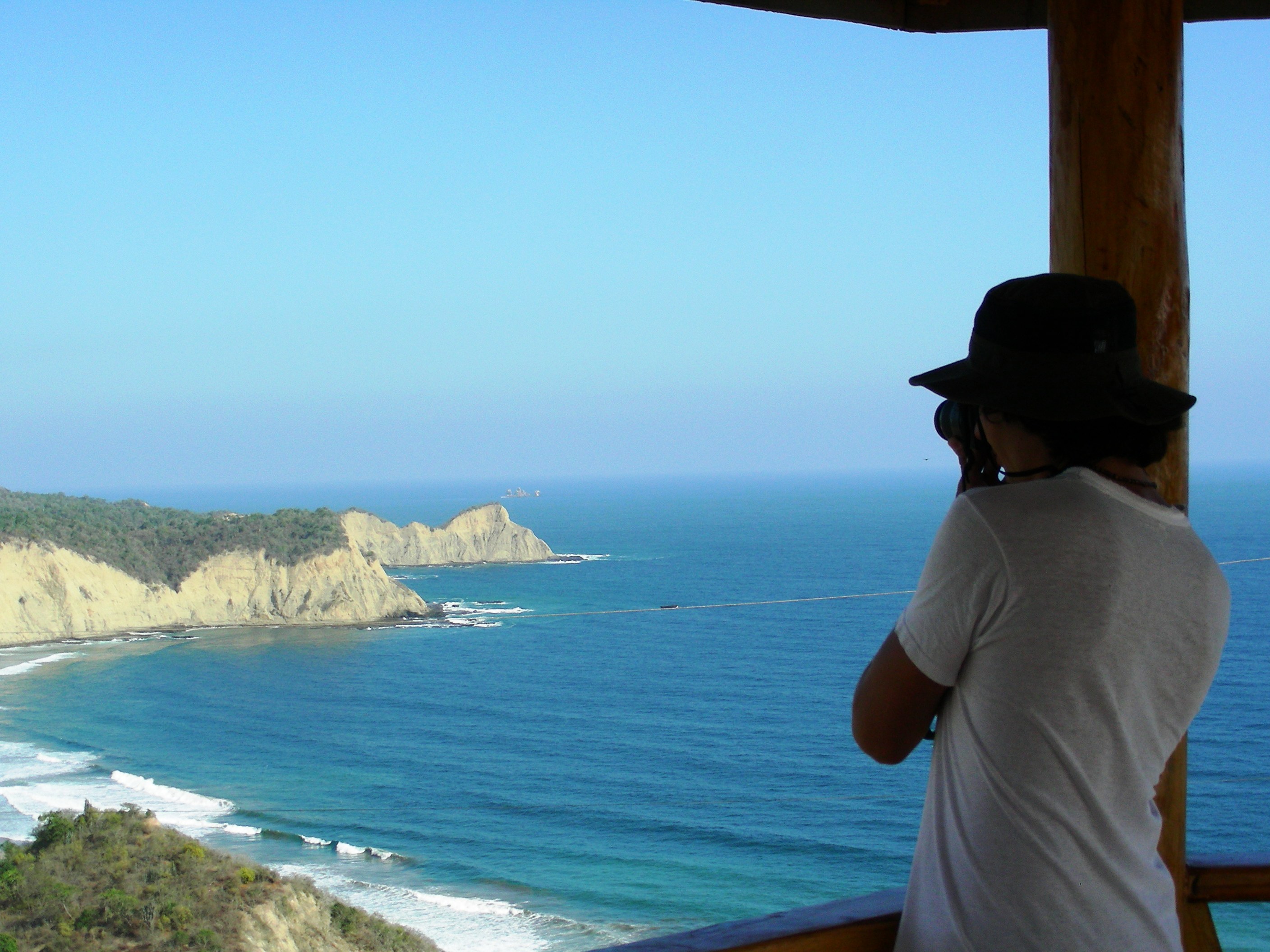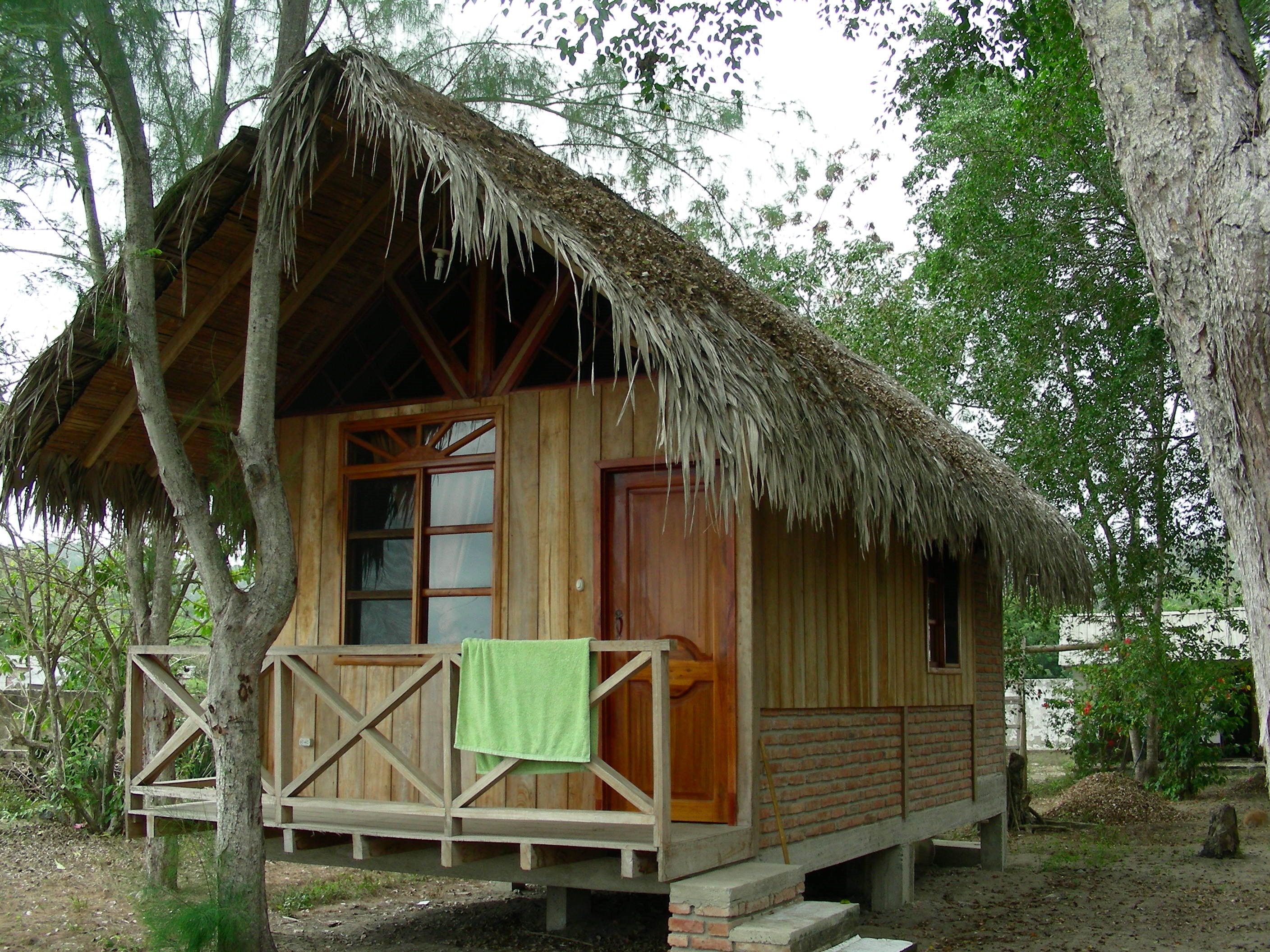SALANGO, ECUADOR
Archaeological and Ethnographic Field Programs in Ecuador

Program Description
Both the archaeological and ethnographic programs are organized as ongoing research projects. The primary focus is on providing students with hands on methodological training that occurs within the context of accomplishing research objectives. The ethnographic and archeological research programs are unified, centering on understanding local subsistence practices in variegated micro-ecosystems. The research is building a record for how people in coastal Ecuador have made use of multiple such ecosystems within a relatively small region from about 5,000 years ago to the present.
APPLY NOW FACULTY-LED APPLICATION
| Program Dates and Deadlines: | ||||
|---|---|---|---|---|
| Term | Year | Application Deadline (or as space permits) |
Start Date/Check-in | End Date/Check-out |
| Summer | 2023 | April 15, 2024 | June 24, 2024 | August 6, 2024 |
Information Sheet |
|
|---|---|
| Open to | All academic disciplines |
| Language of Instruction | English |
| Level of Study | Undergraduate and Graduate |
| Credit Offered | FAU credits |
| Program Primary Subject | Anthropology, Ethnology, Archaeology |
| Sponsoring College | College of Arts and Letters |
| Education Abroad Advisor | Brendan Richardson |
Program Course Offerings:
- ANT 4802 Ethnographic Fieldwork in Ecuador (3-6 credits)
- ANT 4824 Archaeological Fieldwork in Ecuador (3-6 credits)
- ANG 6905 Graduate Directed Independent Study (1-3 credits)
Course Eligibility & Requirements:
Students participating on the program are required to take at least one of the courses offered for at least 3 credits.
Program Eligibility & Requirements
- Must have a 2.5 overall GPA at the time of application
- Must be in good academic standing at the time of application
- Must be eligible to take FAU courses during the study abroad program term
- See Policies & Procedures page for more information
COVID-19 Statement
Important Information for Study Abroad
The host country or host provider may require proof of COVID-19 vaccination to participate on this program. FAU does not have control over the requirements of a foreign government or other organization. Students should not participate in this program unless they have reviewed and are willing to comply with the public health requirements of the host country or provider. Failure to comply with such requirements may mean you will be denied boarding of your flight, entry into country at immigration abroad, housing, and/or access to public spaces in-country. Please note, as this is not an FAU requirement, FAU is not responsible for verifying your vaccination status prior to travel. If you commit to this program and later withdraw due to vaccination status or other public health requirements of the host country or host provider, you will be subject to financial penalties as described by your terms and conditions.
Students may be required to quarantine once they have arrived to a study abroad destination or isolate if they become ill. If the host country or provider requires travelers to quarantine upon arrival to the host country or isolate at any time, students will be financially responsible for the isolation or quarantine period and must complete this prior to the program start date/check-in. Students must be able to begin program participation by the program start date/check-in. It is the student’s responsibility to know and adhere to the public health guidelines where they are traveling, and to factor those requirements into their travel arrangements and budget.
|
In-country FAU Faculty Leader: Dr. Michael Harris and Instructor Valentina Martinez |
Education Abroad Contact: Brendan Richardson |
| Anthropology Department, College of Arts and Letters | Associate Director, FAU Education Abroad |
|
Dr. Harris Email: mharris@fau.edu |
Phone number: 561-297-3227 |
|
Instructor Martinez Email: vmartine@fau.edu |
Email: brichardson@fau.edu |
Location
Salango is a small fishing village located in its own cove on the central Pacific coast of Ecuador. It's a good representation of what the nearby town of Puerto Lopez was like before the influx of tourism. The community seeks to consolidate its development process by promoting ecotourism. Amongst the natural attractions is the island of Salango, home to beautiful species of seabirds such as blue-footed boobies, frigates, and pelicans among others. Nearby is a marine sanctuary, a site with schools of tropical fish and coral reefs, ideal for diving. Humpback whales ply the coast during the field school period.
Housing
Students live in a research center located in the village of Salango. The village has a few small stores and restaurants, a church, and bars. The research center is a walled compound located on the beach. Students are housed in the Center's cabanas.
Adjacent to the beach and twenty minutes from the Field School’s primary excavation site, the Center is a walled, secure compound. The Salango Research Center is an excellent site for lodging students, as well as processing and curating archaeological materials. The Center has wifi facilities, adjacent archaeological and historical museums, modern kitchen, showers, and toilets. Breakfast and dinner are prepared at the Center by project cooks. Lunches are simple, as appropriate for being in the field.



Program Cost and Funding
Financial Aid and Scholarship Information
- Students participating on FAU Faculty-led Programs may use eligible financial aid
- Program participants may be eligible to apply for the FAU Education Abroad Scholarship
- See additional scholarship and funding information here.
Program Cost
$3,769.00 + tuition for the required program summer course(s). FAU in-state or out-of-state rates apply.
Program fee payment deadlines:
1ST PAYMENT: $2,000 deposit due by TBD, 2023
2ND PAYMENT: $1,769.00 due by May TBD, 2023
Accepted participants will receive detailed payment instructions from the Education Abroad team via email. Links to the payment portal will be sent to participants at least 10 days before the program fee payment deadline. Program fee payments cannot be deferred. Plan accordingly.
Program Fee Includes:
- Accommodations from check-in through check-out date
- Round trip group bus transportation from Guayaquil airport to program site
- Research supplies
- All meals at the Center and in the field
- Internationa Medical Insurance
- Some excursisons
Program Fee Does Not Include :
- $200 administrative fee paid at time of application submission
- International Flight
- Tuition for courses/credits taken on program (FAU in-state and out-of-state rates apply)
- Meals off-site
- Personal spending money
- COVID-19 testing related to travel (entry or exit requirements)
Health, Safety and Travel Documentation
All students must attend pre-departure sessions prior to study abroad. Education Abroad and your program faculty leaders will provide you with further details pertaining to dates, times, and location in the semester before your program.
1) Mandatory pre-departure orientation hosted by the Education Abroad office. This session will cover general international travel related topics such as health, safety, insurance, and travel tips.
2) Mandatory pre-departure meeting hosted by program faculty leader. This session will cover program and location specific information such as arrival, expectations, itinerary, and course overview.
International health and travel insurance
All FAU students participating on an FAU Faculty-led Program will be registered in international health and travel insurance coverage through Cultural Insurance Services International (CISI). This mandatory insurance ensures that students have access to medical and emergency support services while abroad. This is included in the program cost.
COVID-19
Students may be required to quarantine once they have arrived to the study abroad destination or isolate at any point during the program. If quarantine is required, it is the student’s personal and financial responsibility to complete prior to the start of the program so that they are available to participate for the program start date. It is the student’s responsibility to know and adhere to the public health guidelines where they are traveling, and to factor those requirements into their travel arrangements and budget.
Resources
- U.S. Department of State Travel Advisory – Country Information: Travel Advisories (state.gov)
- CDC: https://www.cdc.gov/coronavirus/2019-ncov/vaccines/vaccine-benefits.html
- FAU SHS: FAU - Health Advisory
- WHO: https://www.who.int/news-room/q-a-detail/coronavirus-disease-(covid-19)-vaccines-safety
- Access to vaccine: FAU - COVID-19 Vaccine Information
- Benefits of being fully vaccinated prior to departure for your study abroad program:
- Reduced risk of denied entry if a country requires vaccination for entry
- Reduced risk of having to get vaccinated abroad if it becomes mandatory in the country of study
- Reduced risk of denied acceptance to one of our foreign universities
- Reduced risk of denied acceptance into campus housing or host accommodations abroad
- Reduced risk of spreading COVID-19 and its variants to other parts of the world, including the communities where we have programs
- Reduced risk of contracting COVID-19 while abroad, which could lead to missed classes and excursions, mandatory quarantine or isolation, and other disruptions to the program
- Increases student access to local events, services, and travel while abroad
- Provides more flexibility in planning study abroad extracurricular activities, including excursions
- The WHO and U.S. CDC agree that the vaccine helps reduce the risk of serious illness and helps prevent the spread of COVID-19
- Alongside our other prevention measures, the vaccine significantly increases protection for FAU faculty, staff, students, and international partners
Regarding increased access because of being vaccinated, please be aware that businesses and services may legally restrict access to exclude unvaccinated individuals. Local ordinances may allow the same. In such cases, FAU won’t be able to intervene or advocate on your behalf.
Travel Documentation
A valid passport is required for all international travel. If you are traveling anywhere abroad, you need a passport to board an international flight and to enter the country. Passport cards will not be accepted as form of I.D. You may be denied boarding if you travel with a passport that appears damaged or altered.
Some countries require that your passport be valid at least six months beyond the dates of your trip. Some airlines will not allow you to board if this requirement is not met. Check the Country Information to learn about entry and exit requirements for the country or countries in which you are traveling.
If you are applying for a passport for the first time, you need to renew your passport, or you have any other passport questions, you can find information on the Travel.State.Gov website. In addition, several U.S. Embassies and Consulates provide information to assist applicants in collecting the documentation needed. For a list of Embassies, please visit U.S. Embassy.gov
.